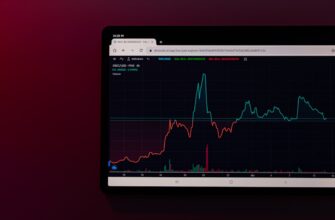🔐 USDT Mixer — Total Privacy for Your Crypto
Experience fast and secure USDT TRC20 mixing. 🌀
No accounts. No records. Just full anonymity, 24/7. ✅
Service fees start at only 0.5%.
- How to Pay Taxes on Crypto Income in India: 2023 Complete Guide
- Understanding India’s Crypto Tax Framework
- Types of Crypto Income and Tax Treatment
- Step-by-Step Guide to Calculate Crypto Tax
- TDS on Crypto Transactions: What You Must Know
- Filing Crypto Taxes in Your ITR
- FAQs: Paying Taxes on Crypto Income in India
- 1. Is crypto legal in India if it’s taxed?
- 2. How is crypto taxed if I hold long-term?
- 3. Do I pay tax when transferring crypto between my wallets?
- 4. Can I deduct crypto trading expenses?
- 5. What if I traded on foreign exchanges?
- 6. Are there penalties for non-compliance?
- Staying Compliant in 2023
How to Pay Taxes on Crypto Income in India: 2023 Complete Guide
With India’s cryptocurrency market booming, understanding how to pay taxes on crypto income has become crucial for investors and traders. The Finance Act 2022 established clear tax rules for Virtual Digital Assets (VDAs), making compliance mandatory. This comprehensive guide breaks down everything you need to know about crypto taxation in India – from tax rates and TDS requirements to filing procedures – helping you avoid penalties and stay legally protected.
Understanding India’s Crypto Tax Framework
India treats cryptocurrencies like Bitcoin and Ethereum as Virtual Digital Assets (VDAs), not legal tender. Key regulations include:
- 30% flat tax on profits from crypto transfers
- 1% TDS on all transactions above ₹10,000 (per transaction)
- No loss offset – Crypto losses can’t reduce other taxable income
- Gift tax – Receiving crypto as a gift is taxable for the recipient
These rules apply to all residents regardless of holding period, eliminating previous distinctions between short-term and long-term capital gains.
Types of Crypto Income and Tax Treatment
Different crypto activities trigger distinct tax implications:
- Trading Profits: 30% tax on net gains after deducting acquisition cost
- Staking Rewards: Taxed as income at market value when received
- Crypto Mining: Treated as business income with applicable slab rates
- Airdrops & Forks: Taxable as “Income from Other Sources”
- NFT Sales: Subject to 30% capital gains tax
- Crypto Gifts: Recipient pays tax based on fair market value
Step-by-Step Guide to Calculate Crypto Tax
Follow this process to determine your tax liability:
- Track all transactions: Record dates, amounts, and values of every buy/sell/trade
- Calculate acquisition cost: Use FIFO (First-In-First-Out) method for cost basis
- Determine net gain: Sale price minus cost basis minus transaction fees
- Apply 30% tax: On positive net gains from all transactions combined
- Add surcharge & cess: 4% Health & Education Cess applies to tax amount
Example: If you bought 1 BTC for ₹20,00,000 and sold for ₹25,00,000 with ₹10,000 transaction fees:
Net gain = ₹25,00,000 – ₹20,00,000 – ₹10,000 = ₹4,90,000
Tax = 30% of ₹4,90,000 = ₹1,47,000 + cess (₹5,880) = ₹1,52,880
TDS on Crypto Transactions: What You Must Know
The 1% TDS rule impacts both buyers and sellers:
- Applies when transaction value exceeds ₹10,000 (for businesses) or ₹50,000/year (for individuals)
- Exchanges deduct TDS at the time of transaction
- TDS credit appears in Form 26AS for tax filing
- Failure to deduct TDS attracts 18% annual interest penalty
Always check your exchange’s TDS deduction reports and reconcile them with your personal records quarterly.
Filing Crypto Taxes in Your ITR
Report crypto income in your Income Tax Return (ITR) using these steps:
- Choose correct ITR form (typically ITR-2 or ITR-3 for crypto traders)
- Report gains under “Capital Gains” or “Income from Other Sources”
- Disclose all crypto holdings in Schedule VDA
- Claim TDS credit using details from Form 26AS
- Pay balance tax by July 31st (non-audit cases)
Maintain detailed records of:
– Wallet addresses and exchange statements
– Transaction IDs and timestamps
– Calculation sheets for cost basis
FAQs: Paying Taxes on Crypto Income in India
1. Is crypto legal in India if it’s taxed?
While not legal tender, cryptocurrency isn’t illegal. The tax framework regulates transactions without banning ownership.
2. How is crypto taxed if I hold long-term?
India has no long-term capital gains benefits for crypto. All gains are taxed at 30% regardless of holding period.
3. Do I pay tax when transferring crypto between my wallets?
No tax applies on transfers between your own wallets. The 1% TDS may still apply if done through an exchange.
4. Can I deduct crypto trading expenses?
Only acquisition costs are deductible. Expenses like exchange fees, internet charges, or hardware costs aren’t allowed.
5. What if I traded on foreign exchanges?
All global crypto income is taxable for Indian residents. Convert foreign currency values to INR using RBI exchange rates.
6. Are there penalties for non-compliance?
Yes! Penalties include:
– 50% to 200% of tax evaded
– ₹10,000 per TDS default
– Prosecution with possible imprisonment
Staying Compliant in 2023
With increased data sharing between exchanges and tax authorities, crypto tax compliance is non-negotiable. Use these best practices:
– Reconcile transactions monthly using crypto tax software
– Pay advance tax if liability exceeds ₹10,000
– File returns before deadlines even with zero gains
– Consult a CA for complex cases like DeFi or mining operations
As regulations evolve, staying informed through official CBDT circulars ensures you avoid costly mistakes while legally maximizing your crypto investments.
🔐 USDT Mixer — Total Privacy for Your Crypto
Experience fast and secure USDT TRC20 mixing. 🌀
No accounts. No records. Just full anonymity, 24/7. ✅
Service fees start at only 0.5%.








